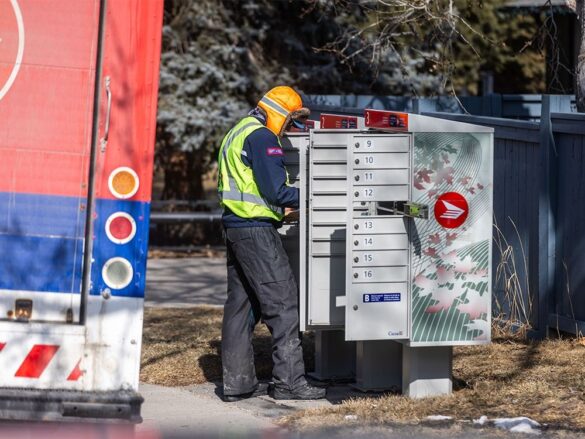Canada Post has declined the Canadian Union of Postal Workers’ (CUPW) request for binding arbitration to resolve an ongoing labour dispute after 18 months of negotiations. Representing about 55,000 workers, CUPW proposed arbitration to settle outstanding contract issues, but Canada Post argued that this approach would prolong uncertainty and worsen the company’s financial challenges. Instead, Canada Post is advocating for a direct vote by employees on its final offers, awaiting federal government approval to proceed. Meanwhile, CUPW members have initiated a nationwide overtime ban amid the impasse.
Background of the Labour Dispute
The labour dispute between Canada Post and the Canadian Union of Postal Workers (CUPW) has extended over a period of 18 months, centered on contract negotiations involving approximately 55,000 postal employees. The core issues include wages, working conditions, and job security, which remain unresolved despite numerous negotiation sessions. CUPW has sought binding arbitration as a means to expedite resolution and avoid further disruption of postal services.
Canada Post’s Position on Binding Arbitration
Canada Post has formally rejected CUPW’s request for binding arbitration, citing concerns that involving a third-party arbitrator would not resolve the dispute efficiently. The corporation argues that arbitration could prolong the uncertainty surrounding contract terms and potentially exacerbate ongoing financial challenges. Officials from Canada Post maintain that their priority is to find a sustainable solution capable of maintaining operational stability without imposing additional costs.
Alternative Resolution Proposal
In place of arbitration, Canada Post is proposing a direct vote by CUPW employees on the company’s final contract offers. This approach, however, requires authorization from the federal government, which oversees the regulatory framework governing Canada Post. The company contends that a clear, democratic decision by the workforce would provide a definitive path forward and help restore normal postal operations.
CUPW’s Response and Current Actions
In response to the ongoing stalemate and rejection of arbitration, CUPW members have initiated a nationwide overtime ban as a form of protest. This action aims to increase pressure on Canada Post and federal authorities to address the union’s concerns more effectively. The overtime ban significantly affects delivery schedules and other postal services, highlighting the critical nature of the negotiation impasse.
Implications and Next Steps
The refusal to engage in binding arbitration marks a significant moment in the prolonged dispute, with both sides maintaining firm positions. The federal government’s decision regarding Canada Post’s request for a direct employee vote could influence the trajectory of the negotiations. Meanwhile, the continuation of labour actions such as the overtime ban may lead to further operational disruptions unless a mutually agreeable resolution is reached promptly.
The ongoing labour dispute between Canada Post and the Canadian Union of Postal Workers remains unresolved after 18 months of negotiations, with Canada Post rejecting binding arbitration in favor of a direct employee vote on final contract offers, pending federal approval. Meanwhile, CUPW’s nationwide overtime ban continues to impact postal services, underscoring the urgency of reaching an agreement. The federal government’s forthcoming decisions will play a crucial role in determining the dispute’s next phase and the potential return to normal operations for Canada Post.

